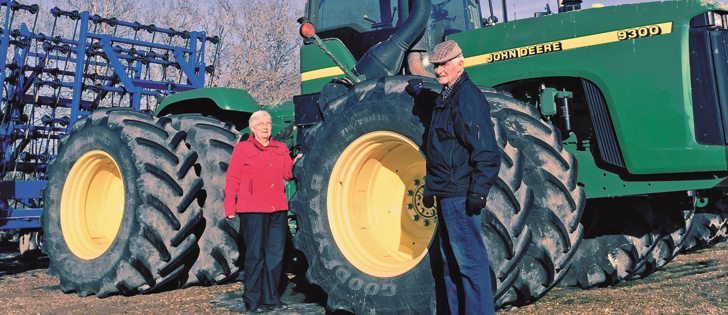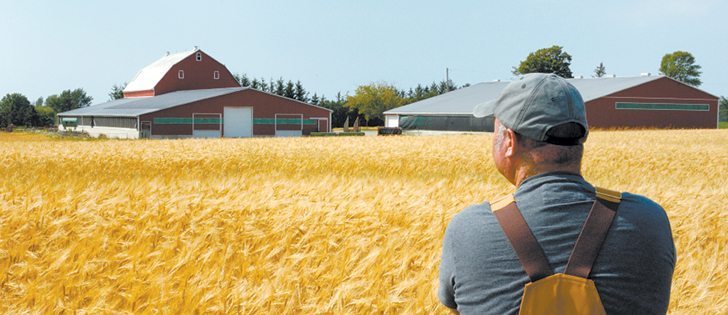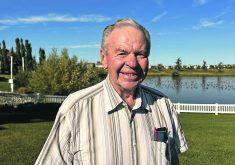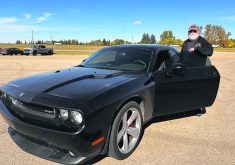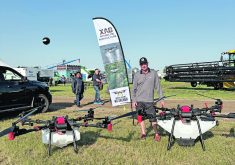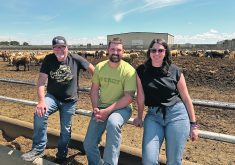Retiring from farming is the same as retiring from any job, but it’s also significantly different.
That’s because people who stop farming are giving up more than a job. For many, it’s a way of life.
An Australian study looked at a group of farmers who had retired and left their farms 1 1/2 to seven years before the study began. All farmers were married and living with their spouses.
The study concluded that some of the men found making a gradual transition from full-time farming to not farming helped with the adjustment.
Read Also

Joint tenancy differs from tenancy in common in Sask.
While joint tenancy and tenancy in common both allow co-ownership of a single parcel of land, the impact of each optiondiffers drastically when it comes to estate planning.
Some of the men found the change was easier if they made a gradual transition rather than just quitting the farm all at once.
Men who developed hobbies or interests before or after retirement and who maintained or developed social networks said they were satisfied with their retirement.
Other stories in this series:
- What happens once you’re there (and it’s no fun)
- Retired and bored? Give the yard a facelift
- Saving for children’s education requires a plan
- The pros and cons of buying a condo in the city
The results are similar to those for retired men in urban settings, the study concluded, but with one stipulation.
“The particular ramifications of retirement for rural men with a strong attachment to the land need to be considered for their potential health implications: an issue for further research.”
This is what satisfaction in retirement looks like for a couple of Saskatchewan producers.
At not quite 50, Eric Olafson of Wynyard, Sask., was a bit younger than most farmers when he retired from farming. He still remembers vividly the night he finally was able to tell his wife, Karen, and his mother his decision.
“We were over having supper at my mom’s,” he said in a phone interview from his winter home in Parksville, B.C.
“We were winding up harvest and it had been a tough harvest. I sat there and it took me a long time to get the words out. I said, ‘I don’t think I can do this anymore.’ It was really hard to say those words, to verbalize what I’d been thinking for some time … the whole thing of the struggle on the farm, poor crops, poor prices.… I don’t know what it is about farming. People quit other jobs.… It’s all tied up in the way of life. It’s so much more than just a job. And then there’s the question, what am I going to do now? But I did have options. I was already working part-time for crop insurance. I would just work more hours at that.”
However, saying it out loud also evoked a huge sense of relief.
“Sounds contradictory but it isn’t. It was, ‘OK, I’m going to do this.’ ”
That was in the fall of 1994. From then until 2005, he continued working at his off-farm job and doing what he calls “hobby farming,” downsizing from a 1,200 acre grain farm to 300 acres and acquiring a herd of elk. He also did some welding from his shop on the farm and operated a bed and breakfast out of his mother’s farm house.
Eleven years later, all the land is sold or rented out. The Olafsons still own 480 acres and their farm home where they live. The elk are gone, they no longer operate the bed and breakfast and any welding Olafson does these days is mostly because he just feels like doing it. He’s past 65, but he still works part-time for crop insurance.
“No, that’s not just to keep busy,” he says.
“There are lots of things I could do to keep busy that aren’t work. It’s not that I mind the work, but it’s still work. When you go to work for somebody and they tell you what to do, it’s called work. When you sit around like I do here in B.C., go for a walk when I want to or go skating when I want to or go visit my relatives when I want to, it’s called not working.
“Some people say they work because they have to have something to do in retirement. Well, that’s why they invented golf and grandchildren and all those other things that are fun. I think that’s an important distinction to make when you’re talking about retirement.”
Olafson also finished an arts degree that he began 50 years ago, which he puts in the fun category.
He talked with his daughter, who’s working on her master’s degree, did some research and discovered that the classes he took in 1965 would count for his degree. He could then take the rest online.
Another perk was that students 65 and older don’t have to pay tuition fees at the University of Saskatchewan.
He is majoring in history and sociology and needs another full year of classes to finish his bachelor of arts.
He took a class at Vancouver Island University in Nanaimo, B.C., while he and Karen wintered on the coast last year, and this fall he’s been accepted as a U of S exchange student and is hoping to study for a semester at the University of Iceland.
“I’m living proof there’s life after farming,” he says.
“The things I loved about farming, the things I thought I’d miss, like harvesting a nice crop, driving the combine … now I remember more how itchy barley was when I was shovelling it. I don’t miss it. I don’t miss having machinery break down at inopportune times, I don’t miss running for parts. ”
And then there are the bragging rights.
” I get my midterm back and it’s an 85 and I say, ‘way to go.’ I take a picture of it and text it to my daughter. She texts back, ‘congratulations, way to go.’ ”
Glen Lowndes, a producer from Kelvington, Sask., retired 20 years ago. His two daughters, Susan and Sandra, took over the grain farm, adding a herd of cattle and eventually switching the farm from conventional to organic.
“The definition of retirement is very nebulous unless you leave the farm and go live somewhere else,” he says.
He and his wife, Orlynn, didn’t want to do that.
“It seemed to me if the girls were going to farm, you’d better let them take a lot of the responsibility so that their decisions matter. If you’re going to stay put and say ‘no’ to this and ‘no’ to that, pretty soon they’ll get discouraged and find somewhere else to go.”
Susan and Sandra Lowndes farm land originally owned by their grandfather. They now farm 16 quarter sections, some owned, some rented. They have called the farm Woodshutts in honour of their great-grandfather’s farm in England, the original Woodshutts.
Glen and Orlynn are active in their retirement. Some things have changed, some haven’t. “We’ve always done a lot of travelling. I don’t think it’s increased,” says Glen.
He reckons he’s as busy farming as he’s always been with a couple of important distinctions: he isn’t making all the decisions, and though there’s always something for him to do, “If I didn’t feel like doing it, I’d goof off, I guess,” he says with a smile.
Glen and Orlynn are bridge players. Glen is also involved with a men’s choir and sings with the Kelvington United Church choir.
After a lifetime of community involvement, which included serving as a director with Saskatchewan Wheat Pool, Parkland Community College, mediation with Saskatchewan Farm Machinery Board and the Farm Tenure Arbitration board and teaching agriculture courses through the U of S’s extension department and a federal manpower program, he says it’s time to let others step into those positions.
He says satisfaction in retirement means knowing the farm is staying in the family. He understands the added burden at retirement that many farmers feel when they don’t have that assurance.
“I was one of the very fortunate ones,” he says. “I had children who were going to take over, and that makes a difference. It doesn’t happen to everybody.”

